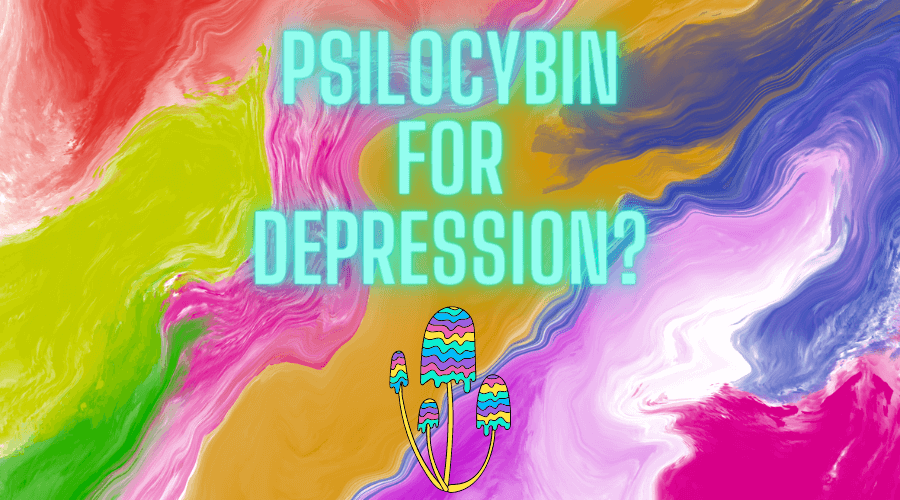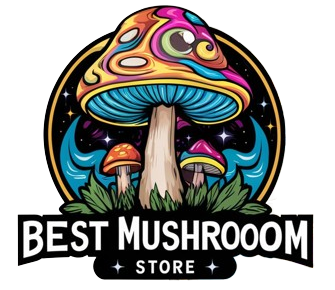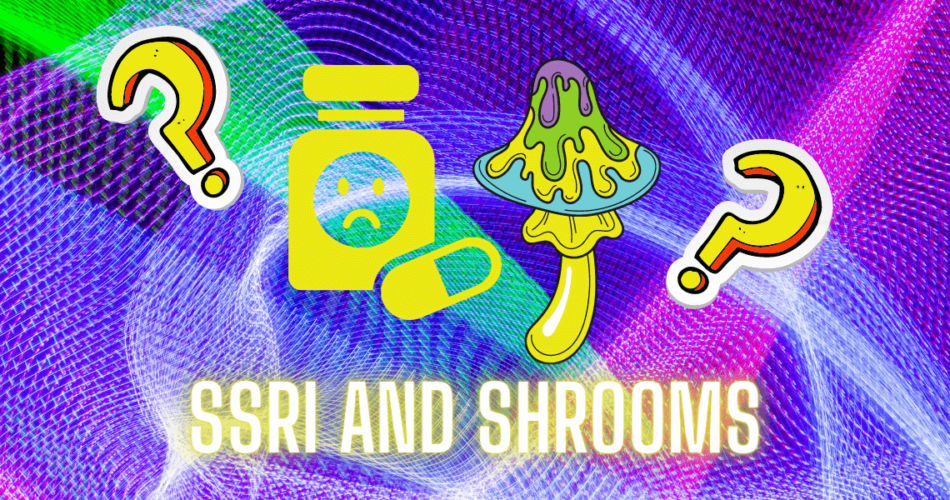Spend some time reading through this article if you’re interested in learning more about taking SSRI and shrooms together. We’ll break down what each of these substances are, as well as how they may interact with each other. We’ll also look at side effects and potential health risks, as well as any research that has been done related to this topic.
TL;DR
- SSRI and shrooms both affect serotonin levels in the brain.
- While some people have reported using shrooms to treat depression, it is generally not recommended to mix them with SSRIs as it can cause serotonin syndrome.
- More studies are needed to determine the therapeutic value of taking shrooms.
What Are SSRI and Shrooms?
Shrooms, an often misunderstood type of fungi, contain a mysterious yet powerful psychoactive compound called psilocybin. Once ingested and metabolized into its active form – psilocin – it can cause mind-altering experiences that may alter perception or moods.
On the other hand, SSRIs (selective serotonin reuptake inhibitors) are commonly used to treat mental health conditions such as depression by boosting levels of serotonin in the brain; this naturally occurring neurotransmitter is responsible for regulating mood among many other functions.

What Do Psychedelic Shrooms and SSRI Have in Common?
SSRI and shrooms each have their own unique way of altering serotonin levels in the brain. While shrooms interact directly with its receptors, causing a surge of neurotransmitter activity, SSRI medications work by blocking reuptake to promote increased availability within the central nervous system. Both methods offer hope for those seeking relief from depression or other conditions related to low serotonin levels.
Editor’s Note
Psilocybin mushrooms can have powerful effects, but they pose legal and ethical concerns around the world. When seeking advice on these substances, it is important to take care that you do not compromise your health or break any laws in doing so – talk with a healthcare professional for more information.
Can You Mix Psilocybin Mushrooms and Antidepressants (SSRIs)?
Mixing SSRIs and shrooms can be a dangerous combination, as it may result in the development of serotonin syndrome. This life-threatening condition causes heightened confusion, agitation and muscle rigidity; along with other concerning symptoms such as increased heart rate and blood pressure.
If you are considering indulging in psychedelic mushrooms while taking an SSRI medication, speak to your healthcare provider first – they’ll make sure that any potential risks or benefits associated with this decision are evaluated before making an informed choice!
Can You Use Psilocybin for Depression (Instead of SSRI)?
Some people have reported using psilocybin mushrooms for depression, anxiety, and other mental health conditions. However, it is important to note that there is limited scientific research on the use of psilocybin for these purposes.
While some studies have shown promising results, more research is needed to determine the effectiveness of magic mushrooms as a treatment for depressive disorders and other mental health conditions. Additionally, even small doses of psilocybin can have negative side effects, including anxiety, paranoia, and confusion, which may outweigh any potential benefits.
If you are considering using psilocybin mushrooms for depression or another mental health condition, it is important to speak with your healthcare provider first. They can help you understand the potential risks and benefits and determine if it is a safe and appropriate treatment option for you.

Can Shrooms Cause Serotonin Syndrome?
As mentioned earlier, mixing SSRI and shrooms can lead to serotonin syndrome. However, even without the presence of SSRIs, shrooms can still cause an increase in serotonin levels and potentially lead to serotonin syndrome.
Symptoms of serotonin syndrome can include agitation, confusion, rapid heart rate, high blood pressure, and muscle rigidity. If you experience any of these adverse effects after ingesting psilocybin mushrooms, it is important to seek medical attention immediately.
In conclusion, while both SSRI and shrooms have an impact on serotonin levels in the brain, it is generally not recommended to mix them.
Frequently Asked Questions
Can I Stop Taking My SSRIs Before Taking Psilocybin Mushrooms?
While the benefits of SSRIs may be tempting, it is essential to speak with your healthcare provider before quitting any medications. Abruptly ending use can potentially cause withdrawal symptoms or a deadly serotonin syndrome if combined with psilocybin mushrooms – so think twice!
How Long Do the Effects of Psilocybin Mushrooms Last?
The effects of psilocybin mushrooms can vary depending on the dose, individual tolerance, and other factors. Generally, the effects can last for several hours, with peak effects occurring between 1 and 2 hours after ingestion. However, some people may experience lingering effects for up to 12 hours or more.
Are There Any Potential Long-Term Effects of Using Psilocybin Shrooms?
Despite limited research on the subject, there are indications that psilocybin mushrooms may provide therapeutic benefits for certain mental health conditions in the long-term. Yet users should still take caution when considering regular use as potential risks like psychological dependence or negative effects on brain functioning remain unknowns. If you’re wondering about these longer repercussions then it’s best to consult a healthcare professional and determine if this is an appropriate treatment option for your particular situation.
Similar Posts:
- LSD and SSRI | Is It Safe to Take Psychedelics With SSRIs?
- Lexapro and LSD: Psychedelics and SSRIs Antidepressants
- Prozac and Shrooms: Is This Antidepressant Safe to Take With Psilocybin?
- Prozac and LSD: Is Mixing Antidepressants and Psychedelics Safe?
- Antidepressants and LSD: Taking Psychedelics and SSRI Meds
- Shrooms and Antidepressants: Is Mixing Psilocybin With Other Drugs Safe?
- Can LSD Cause Serotonin Syndrome Like Antidepressants?





